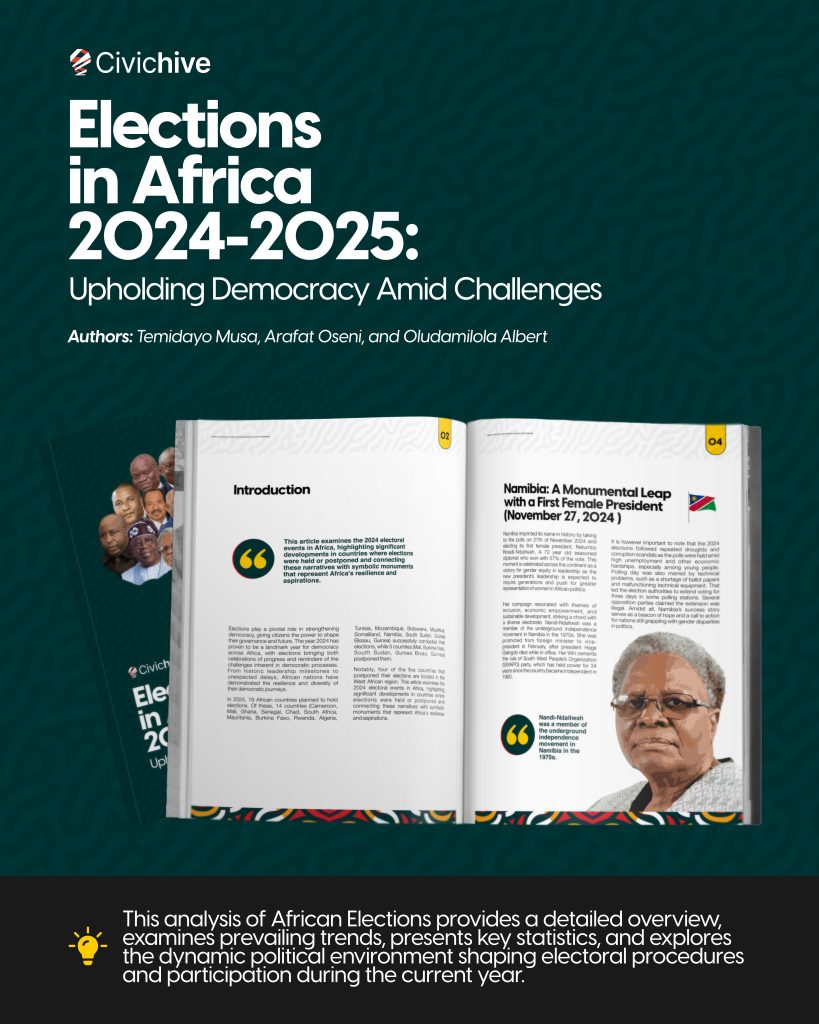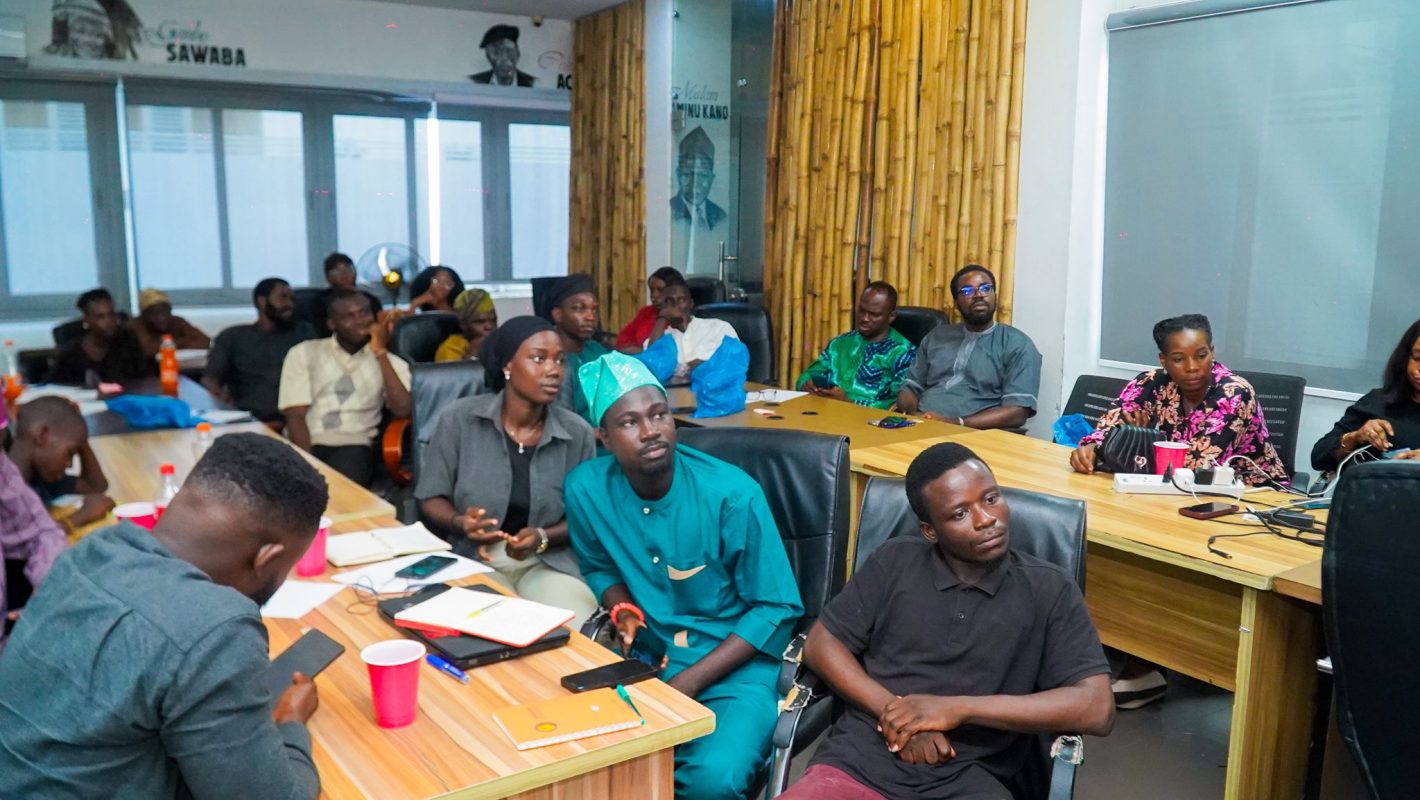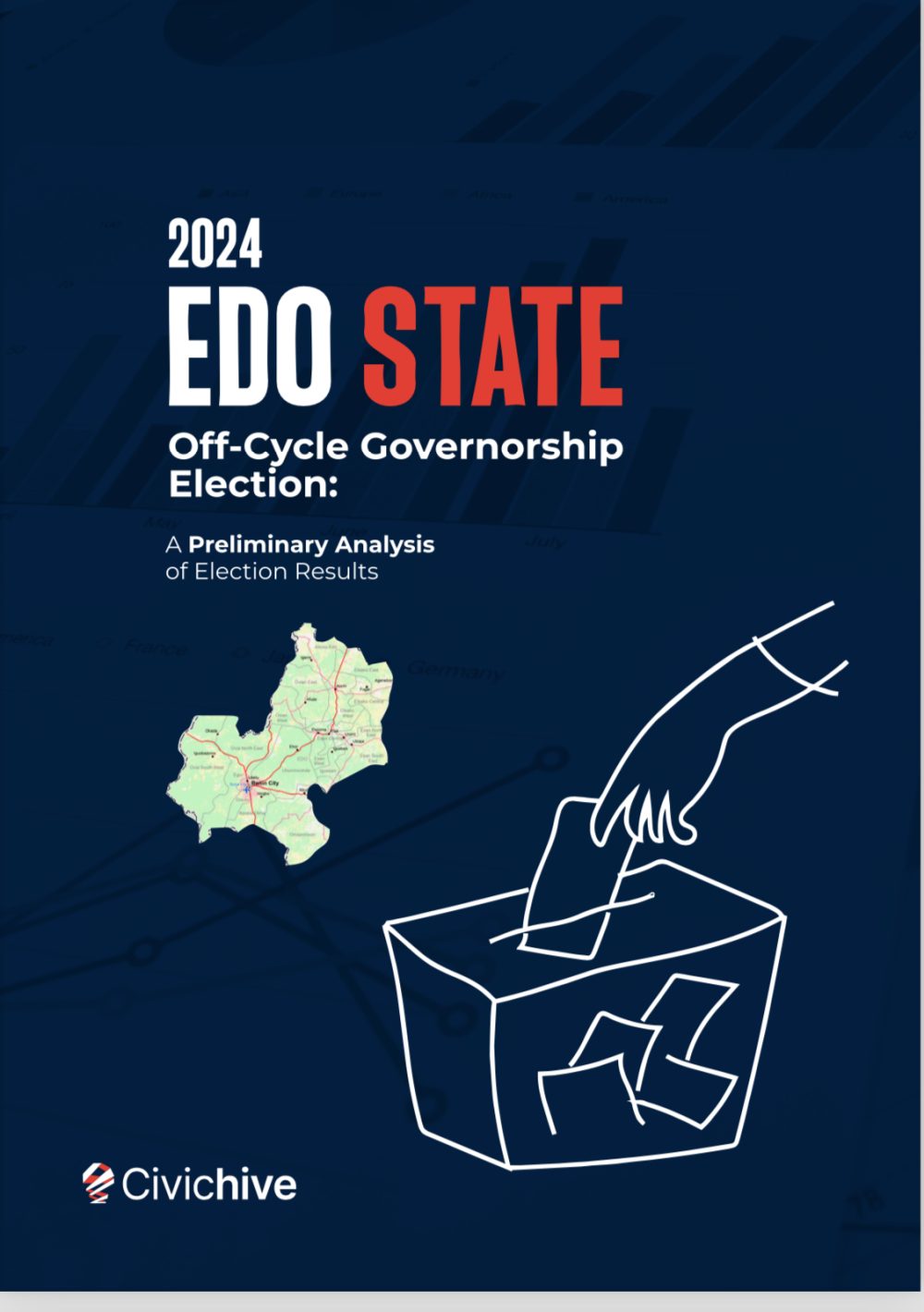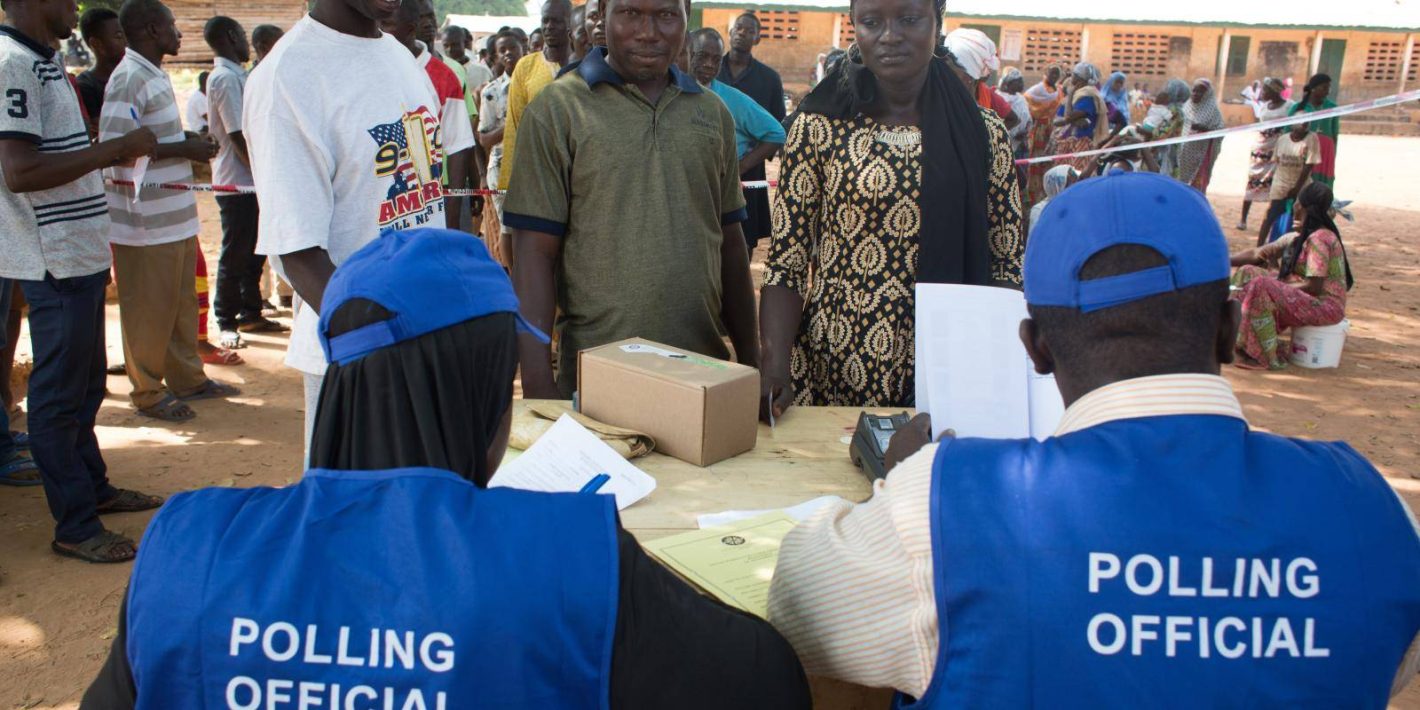The year 2024 has proven to be a defining moment for democracy across Africa. From historic wins and generational shifts in leadership to contested results and postponed elections, the continent’s political landscape has reflected both resilience and fragility.
In our latest report, “Elections in Africa 2024–2025: Upholding Democracy Amid Challenges”, we noticed that the year 2024 was not just a year for ballots, it was also a year of battles for legitimacy, inclusion, and transformation.
- A New Era: Youth and Women Take the Stage
The most celebrated milestone came from Namibia, where the country elected its first-ever female president, Netumbo Nandi-Ndaitwah, a former liberation fighter and diplomat. Her win not only shattered gender ceilings but reignited the conversation about women’s leadership across the continent.
In Senegal, 44-year-old Bassirou Diomaye Faye emerged as Africa’s youngest president, after leading a powerful youth-driven movement that forced the reversal of an election delay. His victory symbolized a rejection of political stagnation and a leap towards a new vision centered on ethics, innovation, and social justice.
Ghana, another long-standing democracy, saw the return of John Mahama to power, this time alongside Naana Jane Opoku-Agyemang, the country’s first female vice president. While the NDC’s win was significant, the real test lies in governing through an economic crisis and restoring voter confidence.
- Democracy Under Strain
But while some countries moved forward, others took alarming steps backward.
In Rwanda, Paul Kagame secured a fourth term with 99.18% of the vote—a figure that raised eyebrows globally. With opposition candidates sidelined and reports of repression, the election underscored the limits of Rwanda’s tightly managed political space.
Tunisia, once hailed as the lone success story of the Arab Spring, continued its slide into authoritarianism under Kais Saied, whose sweeping re-election came amid record-low turnout and opposition boycotts.
Mozambique and Algeria held elections marred by irregularities, low participation, and widespread public distrust.
These examples highlight the persistence of electoral authoritarianism—where elections exist, but real democratic choice does not.
- Postponements and Power Plays
Not all countries made it to the polls. In Burkina Faso, Mali, South Sudan, Guinea, and Guinea-Bissau, elections were postponed due to security concerns, constitutional delays, or outright manipulation by military regimes.
Burkina Faso, which was scheduled to return to civilian rule in 2024, saw its military junta suspend elections indefinitely. Similar patterns were observed in Mali, where democratic space continues to shrink amid military consolidation. The trend is especially concerning in West Africa, a region that once led Africa’s democratic wave.
- Looking Ahead to 2025
2025 holds promise—but also uncertainty. Countries like Gabon, Burundi, Malawi, Seychelles, Tanzania, and Côte d’Ivoire are slated for critical elections. However, the early signs—like the indefinite postponement of Togo’s senatorial elections—suggest continued challenges around transparency and inclusivity.
- Conclusion: The Fight Continues
Africa’s 2024 elections were not just political events, they were tests of institutions, values, and the will of the people. They revealed a continent at a crossroads: one part pushing toward transformation and equity, another pulled by the weight of authoritarianism and manipulation.
The coming year will demand vigilance from citizens, courage from civil society, and integrity from political leaders. Africa’s democratic story is still being written, and every vote, every protest, every transition will shape its future.



